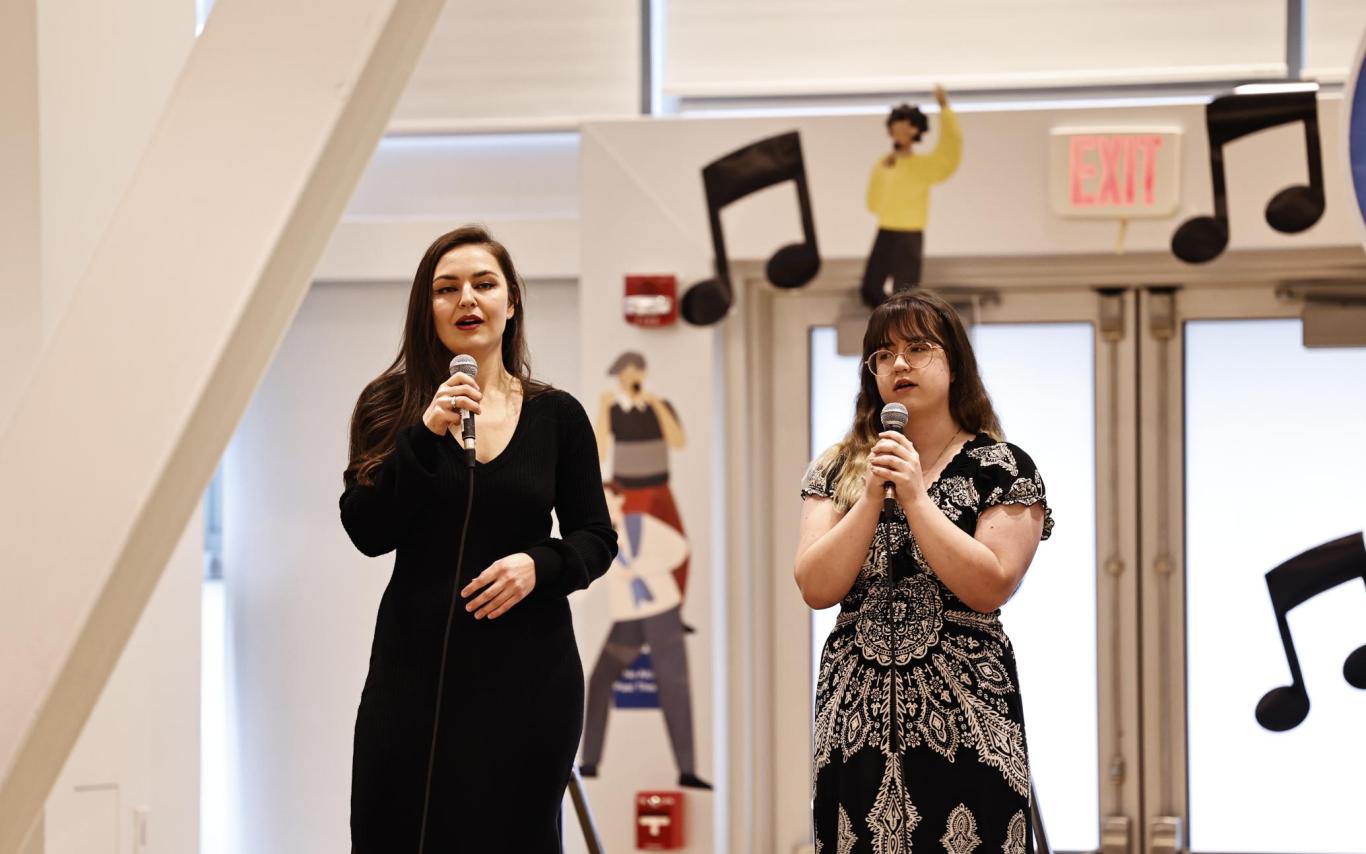It’s the first time VIU students have done so at the event.
Every year in BC, a series of contests are held for university students learning Chinese to present their language and cultural knowledge to a panel of judges.
Held at the University of British Columbia (UBC) and co-sponsored by the Chinese Embassy, these “Chinese Bridge Contests” provide students with opportunities to practice their Chinese, explore Chinese culture, and network with students and professors from other universities. Some of the popular contests include Mandarin singing and Mandarin speech, according to Lei Chen, a professor in VIU’s Modern Languages department, who teaches Chinese.
At the most recent event this past fall, two groups from her Chinese for Beginners class decided to participate in this year’s singing contest. The first round was done online and the final round took place at UBC. A total of eight universities took part in the event overall, with 13 groups being invited to the final round, including one of the groups from VIU
“Students chose Chinese songs they would like to learn and sing, and practiced with their teachers,” says Chen. The students started learning Chinese in September and were introduced to some Chinese songs in the class as part of the cultural experience/activities of the semester.
“They did great in their mid-term oral exam, part of which was to sing a Chinese song that they were taught,” she adds. “Both teams practiced on their own and with me before their performance.”
Practice makes perfect as they say, and when it came to performing at the event, the team of Sarah Hart and Sevilya Hendricks from VIU excelled.
“Our students won first prize,” says Chen. “This is the first time VIU has done so in this contest. I highly appreciate students who participate in these contests, regardless of whether they win a prize or not. It helps other universities to appreciate our students and our Chinese program. Every student demonstrated their efforts, learning attitude, curiosity, courage and potential. They all had fun and appreciated that they could use the language, and all became more confident with their learning.”
She adds that this experience also helped motivate other students in the program, who were inspired to participate in future events after learning of their success. It’s not just about the contests, though, Chen notes, citing other sponsorship and scholarship opportunities.
“There are many opportunities for BC students taking Chinese programs,” she said. “Many students who participate in these contest events are also motivated in applying for those opportunities – and succeed. Personally, I am happy to see students use the Chinese language as a way to develop personal and professional competency, as well as a door to access more opportunities. The VIU Chinese program can benefit more students if they are willing to give it a try.”




